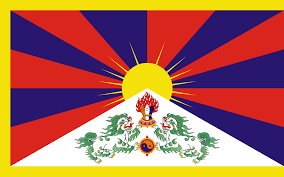Language/Tibetan/Grammar/Questions
Hi Tibetan learners! 😊
In today's lesson, we will be discussing how to ask questions in Tibetan. Asking questions is an important part of any language, and it is no different in Tibetan. We will go over the basics of forming questions, as well as some more advanced topics. By the end of this lesson, you should have a good understanding of how to ask questions in Tibetan.
Don't miss the chance to check out these pages as you wrap up this lesson: Conditional Mood, Pronouns, How to Use Have & Adjectives.
Basics of Question Formation[edit | edit source]
The basic structure of a question in Tibetan is similar to that of English. The subject of the sentence comes first, followed by the verb, and then the object. For example:
- Ngari gongpo yin? - Who is the king?
In this sentence, Ngari is the subject, gongpo is the verb, and yin is the object.
Yes/No Questions[edit | edit source]
Yes/no questions are formed by adding the particle nyi at the end of the sentence. For example:
- Ngari gongpo yin nyi? - Is he the king?
Wh-Questions[edit | edit source]
Wh-questions are formed by adding the appropriate wh-word at the beginning of the sentence. For example:
- Khyi ngari gongpo yin? - Who is the king?
Advanced Topics[edit | edit source]
In addition to the basics of question formation, there are some more advanced topics that you should be aware of.
Tense[edit | edit source]
When forming questions, it is important to pay attention to the tense of the verb. For example:
- Ngari gongpo yin nyi? - Is he the king?
- Ngari gongpo yin gyu nyi? - Was he the king?
Negation[edit | edit source]
Negation can also be used when forming questions. To do this, the particle ma is added after the verb. For example:
- Ngari gongpo ma yin nyi? - Isn't he the king?
Intonation[edit | edit source]
It is also important to pay attention to the intonation of the question. In Tibetan, questions are usually asked with a rising intonation. This helps to distinguish them from statements.
If you have any questions, please ask them in the comments section below.
Feel free to edit this wiki page if you think it can be improved. 😎
Videos[edit | edit source]
ག་དུས། ནམ། 15 examples of asking a “when” question in Tibetan ...[edit | edit source]
Question paper of M.A Buddhist and Tibetan studies 1st Semester ...[edit | edit source]
Other Lessons[edit | edit source]
Sources[edit | edit source]

